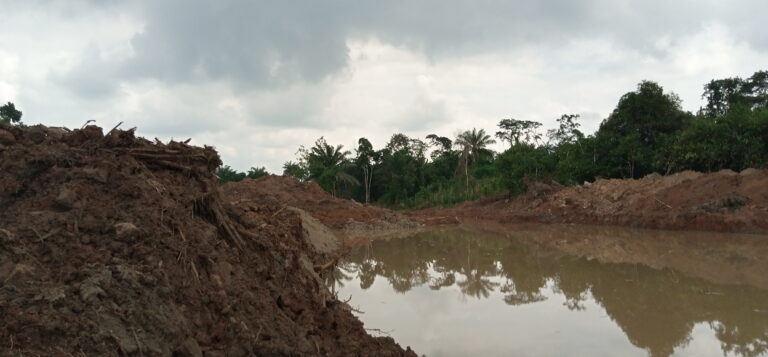
Nigeria, renowned for its abundant solid mineral reserves, is grappling with a paradox. Despite being listed by the Ministry of Mines and Steel Development as a strategic mineral, gold’s contribution to the country’s economy remains far from its potential. The mining industry, despite its significant potential, has been progressing at a snail’s pace.
The Ministry of Mines and Steel Development acknowledges gold as one of humanity’s oldest and most precious metals. However, the sector’s performance has failed to match the nation’s vast mineral wealth. The Nigerian Economic Summit Group (NESG) reveals that the mining industry’s share of national employment is a mere 0.3%, while exports and contribution to the gross domestic product (GDP) amount to 0.02% and approximately N400 billion, respectively. These numbers, particularly in contrast to mineral-rich African peers such as Ghana, Cote d’Ivoire, South Africa, and the Democratic Republic of Congo (DRC), underscore the untapped potential.
Numerous factors, including illegal mining and smuggling, have been cited as key reasons for the Nigerian mining industry’s underperformance, particularly in the gold sector. Illegal mining refers to unapproved operations conducted without mining licenses, land rights, or proper permissions. This secretive sector’s true magnitude remains shrouded in mystery, making accurate assessment challenging.
Recent claims by human rights lawyer Femi Falana, quoting former Minister of State for Mines and Steel Development Uche Ogah, have intensified concerns about illegal gold activities. Falana alleged that around $9 billion worth of gold is illicitly extracted from Nigeria annually, often transported via private jets. These claims prompted the Senate Committee on Solid Minerals, Mines, Steel Development, and Metallurgy to initiate a public investigation.
During the inquiry, Mohammed Auwulu of Manorda Nigeria Limited asserted that Nigeria loses N100 million weekly and over N500 billion annually due to gold smuggling. These claims echoed former President Muhammadu Buhari’s 2021 assertion that Nigeria lost $3 billion to gold smuggling between 2012 and 2018. Uche Ogah was also reported to have said that Nigeria lost $5 billion to gold smuggling between 2012 and 2018. Despite government efforts to curb the issue, illicit gold exports persist.
A recent Price water house Coopers (PwC) report highlights an increase in gold exports due to government initiatives. While the gold sector shows promise, weak and illegal exports hinder its growth potential. The metal’s intrinsic value, security challenges, porous borders, and misalignment of federal and state interests contribute to illicit activities.

Amidst these challenges, the federal government acknowledges that illegal mining disrupts Nigeria’s $700 billion industry and fuels high unemployment rates. Although the figures seem substantial, a comparison with top gold exporters like Switzerland and Ghana raises questions. Switzerland, for instance, exported $86.7 billion in gold in 2021, while Nigeria’s exports totaled $157 million. Ghana, a gold-rich African nation, has fully capitalized on its resources, ranking as the 19th highest gold exporter globally.
While gold reserve comparisons between Nigeria and Ghana vary, Nigeria’s substantial gold reserves are undeniable. As Nigeria grapples with revenue losses from smuggling, addressing this issue presents an opportunity to unlock significant economic potential.